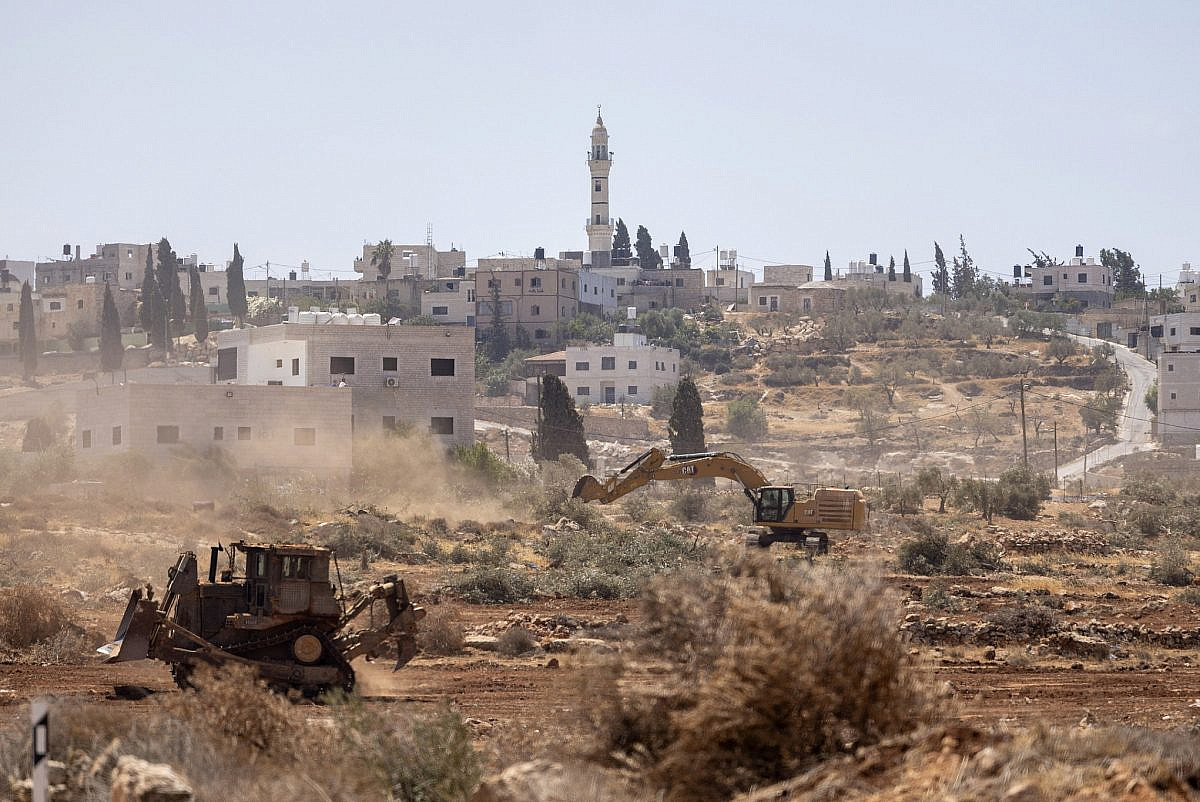Since its founding, Israel has used military and bureaucratic tools to steal Palestinian land while expelling the Palestinian population from it. 93% of the Palestinian territory that Israel took in 1948 to establish its state are reserved exclusively for Jewish citizens. In the occupied West Bank and Gaza, Israel has extended the same strategy of military orders and bureaucratic procedures. Much of the illegally occupied land is declared “state land,” “firing zones,” or “natural reserves”, to facilitate land confiscation.
This will be the third harvest since the start of the genocide, during which Israel will attempt to deprive Palestinians almost completely of access to their lands. Thousands of dunams, all of them olive groves, are to be harvested but the settler militias, with the support of the occupation army, have forcibly taken control of them.
If this year’s olives are not cultivated, Israel will practice its draconian law that allows it to designate as “state lands” any Palestinian land that remained uncultivated for three consecutive years. By restricting Palestinians’ access to their lands, Israel systematically steals more Palestinian lands.
The ongoing destruction of ancient olive trees, many standing for hundreds of years, is a form of “ecological colonialism”: a calculated effort to erase environmental evidence of Palestinians’ enduring relationship with their land and to undermine their claims to it.
The occupation has also framed trees and crops as a security threat and confiscated farmland under the pretext of “buffer zones” as a tactic to steal Palestinian farmland and expand settlements.
On August 23, 2025, alone, the Israeli military uprooted nearly 3,000 olive trees in the village of al-Mughayyir, near Ramallah, in the occupied West Bank. Soldiers stormed the village at dawn, raided more than 30 homes, destroyed vehicles, and imposed a lockdown. From that day, Israeli bulldozers uprooted some 10,000 olive trees in the eastern plain of the village.
On September 14, the Israeli army issued a military order to bulldoze around 200 dunams of Palestinian agricultural land in Tulkarem (30% of the land is planted with olive trees, 70% with crops). 22 similar orders have been issued, targeting over 600 dunams—an unprecedented surge in land-clearing operations.
Construction of infrastructure, whether that straight forward a wall, or settlement urban areas or related infrastructure such as roads, is a key element for confiscation and annexation. They are built on Palestinian land, the area around them will be off-limits, and in many cases settler attacks cut Palestinians effectively off from the vast land beyond.
In recent months, Israeli authorities have uprooted approximately 400 olive trees in Sinjil to build a 2,7km long wire fence surrounding the town. This cuts the village off a vital road connecting Nablus and Ramallah. Some 1,5km have been completed.
On September 28, a group of settlers stormed 100 dunams of land planted with ancient olive trees in the village of Jinsafut, east of the city of Qalqilya, and established a new settlement outpost: They installed a caravan and raised the Israeli flag over it.
On the same day, Israeli occupation bulldozers continued to pave a apartheid road between the towns of Beit Ur al-Fauqa and Deir Ibzi’, west of Ramallah.The occupation bulldozers paved this Jewish-only road in the “Kreine’a” area for the benefit of the “Beit Horon” settlement. This road deprives eight Palestinian towns from access to their road: Beit Sira, Beit Nuba, Beit Liqya, Kharbatha al-Misbah, Safa, al-Tira, Beit Ur al-Fauqa, and Beit Ur al-Tahta.
With the completion of this project, the village of Beit Ur al-Fauqa will be surrounded on all sides:by the settlement of “Beit Horon” to the east, Road 443 to the south, and a military post with a gate to the west and north.

